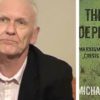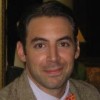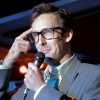016: Jack Schwager on How You Can Become a Market Wizard with Fundseeder.com
Jack Schwager is a recognized industry expert in futures and hedge funds and the author of a number of widely acclaimed financial books. Mr. Schwager is one of the founders of Fund Seeder (FundSeeder.com), a platform designed to find undiscovered trading talent worldwide and connect unknown successful traders with sources of investment capital.
Previously, Mr. Schwager was a partner in the Fortune Group (2001-2010), a London-based hedge fund advisory firm. His prior experience also includes 22 years as Director of Futures research for some of Wall Street’s leading firms, most recently Prudential Securities.
Mr. Schwager has written extensively on the futures industry and great traders in all financial markets. He is perhaps best known for his best-selling series of interviews with the greatest hedge fund managers of the last three decades: Market Wizards (1989), The New Market Wizards (1992), Stock Market Wizards (2001), Hedge Fund Market Wizards (2012), and The Little Book of Market Wizards (2014).
His other books include Market Sense and Nonsense (2012), a compendium of investment misconceptions, and the three-volume series, Schwager on Futures, consisting of Fundamental Analysis (1995), Technical Analysis (1996), and Managed Trading (1996). He is also the author of Getting Started in Technical Analysis (1999), part of John Wiley’s popular Getting Started series.
Mr. Schwager is a frequent seminar speaker and has lectured on a range of analytical topics including the characteristics of great traders, investment fallacies, hedge fund portfolios, managed accounts, technical analysis, and trading system evaluation. He holds a BA in Economics from Brooklyn College (1970) and an MA in Economics from Brown University (1971).
Economic and Finance Themes:
In this interview, Jack mentions and discusses: chartists, technical analysis, fundamentals, futures, normal distribution curve, options, Black-Scholes Options Pricing Model, option warrant trading, efficient market hypothesis, probability, negative externalities, fiscal responsibility, Keynesianism, deficits and demand.
I chose economics because I wasn’t any good to major in physics or math. I just felt I would be mediocre if I went into those fields. On the positive side, I had a super professor for Econ1. He was just so clear and logical – Jack Schwager.
Economists and Traders:
In this interview, Jack mentions: David Shaw, Ed Thorp, John Bender, Michael Marcus, Fischer Black, Robert Merton, Myron Scholes, John Maynard Keynes, Michael Lewis, Nassim Nicholas Taleb, and Yoram Bauman.
In this episode, you will learn:
- why Jack chose economics at University.
- about the similarities between Physics and Economics and why they are so different as a science.
- if there is a certain personality that is required in trading financial markets.
- if there is a holy grail to trading the markets.
- about the importance of discipline.
- how an $18 ‘Job Wanted’ ad in the New York Times landed Jack a position as a key analyst.
- the one trader that particularly impressed Jack.
- about the different strategies of some of Jack’s Market Wizards.
- why normal distribution tail events can have a higher probability of occurrence than is lead to believe.
- about the tragic ending of Market Wizard John Bender and the current case against his wife by the Costa Rican authorities for his ‘murder’.
- about Fund Seeder – the world’s first search engine for undiscovered trading talent.
- about Jack’s forthcoming book with the working title ‘Undiscovered Market Wizards’ and how you could possibly feature it.
- about the Market Wizards Roadshow coming soon in 2015.
- why Jack wrote his book ‘Market Sense and Nonsense’.
- about the debunking of the efficient market hypothesis.
- what a negative externality is in the context of economic theory.
Physics, Economics and the Stock Market: A Connection
Economics is more complex from a quantitative standpoint because in physics at least the rules are well-defined and don’t change and in economics they’re not stable.
Many schools in economics get it wrong because they fail to appreciate the influence of human behavior which is not stable.
Because of the human element it becomes much more difficult to forecast in economics than it is using physical laws.
A lot of traders interviewed for the Market Wizards book come from the higher level mathematics and physics spectrum. That’s one type of person who is attracted to the markets. It’s solving analytical problems that intrigues them.
Other traders are very intuitive and have a completely different approach to trading markets.
Trading with Discipline in the Markets
There are no secrets to trading the markets. There are an untold number of ways in which the markets can be successfully approached.
They are all very difficult and most people will fail. There is no common approach and it’s more of a matter of finding an approach that works for you.
It doesn’t matter if you’re quant or not quant, chart or fundamental, long-term or short-term. Whatever approach you do use, you better be disciplined or it’s not going to work.
Once I got involved in futures, I quickly discovered that at that time, at least on the analytical side, there wasn’t much talent out there. I think I succeeded because competition was very easy at that time – Jack Schwager.
Life for almost all of us is tremendously influenced by chance more so than people would admit or realise – Jack Schwager.
Probability and Options
The options markets are pricing for the assumption of equal probabilities at all times on both sides.
Options are priced for neutrality all of the time and that’s not reality. There are certain circumstances in the markets where something happening is much more likely to occur on one side of the distribution curve than the other.
The markets may assume a log normal distribution. But when there is a critical stop level at some price then, when the market goes to that price, the probability that the market will go below that price, what is considered within the tail events, will be much greater. Just getting to that critical price can trigger an avalanche of orders.
Fundseeder: The World’s First Search Engine for Undiscovered Trading Talent
The concept of Fund Seeder is to create a central place on the web where all traders, particularly undiscovered traders can establish their track records, have them verified and then have investors who are looking to allocate new trading talent find them.
The trader links their brokerage accounts with their own account on Fund Seeder so the numbers come directly from the traders’ brokerage account. That critical verification step occurs on this central platform allowing the traders and potential investors to verify the numbers.
There are traders from over 60 countries on Fundseeder who now have the opportunity to get in front of potential investors and establish a track record.
There is also the ‘seeding’ side where investor groups will participate to find traders and offer seed funding. It acts like venture capital where traders will receive seed funding to allow them trade larger accounts, which otherwise would not have been available to them outside Fund Seeder.
Many brokerage firms can be connected to Fund Seeder, including Interactive Brokers, and many more will connect in the near future.
Fund Seeder is a place where traders go to be discovered and where investors go to look for traders. You trade, we connect, they invest – Jack Schwager
Problems Jack Sees with Economics and Finance
- The Efficient Market Hypothesis.
- The Sharpe Ratio.
- Looking at past returns to pick investments.
- Volatility as a satisfactory and complete measure of risk.
- Risk management.
Jack Schwager on Economists, Externalities and Fiscal Responsibility
I believe that 90% of economists will agree 90% of the time. Economists do agree on a lot of things. You can go from a liberal to a conservative spectrum in economics and still have wide agreement on a lot of things Jack Schwager.
The solution to global warming is a revenue-neutral carbon tax. You have a cost attached to the polluter side and you have a benefit attached to growth and expansion.
Keynes would never have argued for deficit spending in an expanding economy
Recommended Books:
- Beat the Dealer by Ed Thorp
- Market Wizards by Jack Schwager
- Market Sense and Nonsense: How the Markets Really Work (and How They Don’t) by Jack Schwager
- The Big Short by Michael Lewis
- Liars Poker by Michael Lewis
- Reminiscences if a Stock Operator by Edwin Lefèvre
- Fooled by Randomness by Nassim Nicholas Taleb
- The Black Swan by Nassim Nicholas Taleb
- When Genius Failed: The Rise and Fall of Long Term Capital Management by Roger Lowenstein
- Fortune’s Formula: The Untold Story of the Scientific Betting System that Beat the Casinos and Wall Street by William Poundstone
- More Money Than God: Hedge Funds and the Making of a New Elite by Sebastian Mallaby
- Endurance: Shackleton’s Incredible Voyage by Alfred Lansing
Where To Find Jack Schwager:
- Fundseeder.com
- Website: www.jackschwager.com
- Twitter: @jackschwager

 025: Dan Hamermesh on the Economics of Beauty: Attractive People Are More Successful
025: Dan Hamermesh on the Economics of Beauty: Attractive People Are More Successful 002: Jason Stapleton on Trader Psychology and Why You Shouldn’t Listen to Financial News
002: Jason Stapleton on Trader Psychology and Why You Shouldn’t Listen to Financial News 035: Stephen Young on Being Car-Free and the Behavioural Economics of Owning A Car
035: Stephen Young on Being Car-Free and the Behavioural Economics of Owning A Car 113: Jonathan McEvoy on Globalisation, National Autonomy, Capitalism and the Economic Resonance in Timeless Songs
113: Jonathan McEvoy on Globalisation, National Autonomy, Capitalism and the Economic Resonance in Timeless Songs 125: Eugene Fama on the Efficient Market Hypothesis, the Feds Fund Rate, Bitcoin and Daily Routines
125: Eugene Fama on the Efficient Market Hypothesis, the Feds Fund Rate, Bitcoin and Daily Routines 036: Jason Shogren on Music and Endogenous Risk and Rationality in the Environmental Goods Market
036: Jason Shogren on Music and Endogenous Risk and Rationality in the Environmental Goods Market 085: Michael Roberts on Understanding Karl Marx and His Thinking on Capitalism
085: Michael Roberts on Understanding Karl Marx and His Thinking on Capitalism 074: Peter Leeson on The Invisible Hook: The Hidden Economics of Pirates
074: Peter Leeson on The Invisible Hook: The Hidden Economics of Pirates 010: Douglas Goldstein on How Chess Can Teach Us Lessons on Strategic Financial Planning
010: Douglas Goldstein on How Chess Can Teach Us Lessons on Strategic Financial Planning 006: Andrew Heaton on Using Comedy to Explain Economic Concepts
006: Andrew Heaton on Using Comedy to Explain Economic Concepts